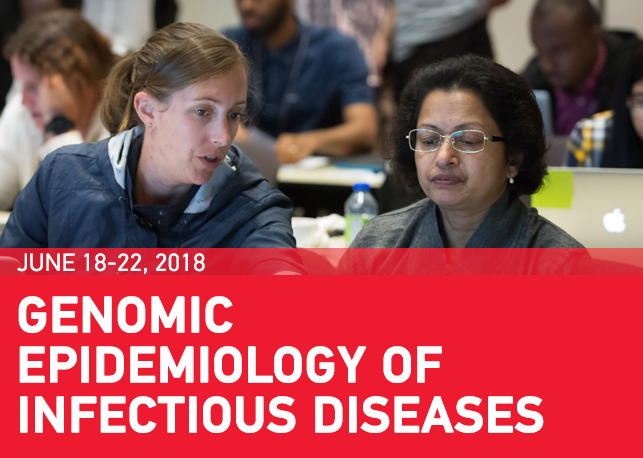
View courses by theme or by week
 Genomic Epidemiology of Infectious Diseases
Genomic Epidemiology of Infectious DiseasesThis course will not be offered in 2024.
This course will provide an intensive introduction to the methods used for analysis of whole genome sequencing (WGS) data and its application to infectious disease epidemiology. Students will learn bioinformatics approaches to WGS analysis through a combination of lectures and hands-on workshops. Topics will include how to perform de novo versus reference-based assembly, how to identify (‘call’) single nucleotide polymorphisms, and creating/interpreting phylogenetic trees. Emphasis will be placed on applications of WGS to outbreak investigation, study design issues and minimizing bias in genomic epidemiologic studies, and the implications that these data can have for public health. While command line may be used during this course, a priori knowledge is not required.
Marcel Behr, MD, MSc
Professor of Medicine, McGill University
Robyn Lee, PhD
Assistant Professor
Epidemiology Division, Dalla Lana School of Public Health, University of Toronto
This course will introduce the principles of genomic epidemiology of infectious diseases, focusing on bacterial pathogens of public health importance. Lectures will cover the methodology behind key WGS analyses and phylogenetic approaches, as well as study design considerations for genomic epidemiology. Lectures will also provide concrete examples of the application of WGS to investigate infectious disease transmission, both in public health and research contexts. Morning sessions will commence with lectures, followed by students breaking into small groups where they discuss published genomic epidemiology manuscripts (provided in advance). The aim of these small groups is to help students learn to critically appraise genomic epidemiology papers, and discuss aspects such as study design and analytic approaches used to address the research questions therein. Afternoon sessions will similarly commence with lectures, followed by practical, hands-on data analysis workshops where students will learn to complete various aspects of WGS data analysis. Time will also be allocated throughout the course for students to ask questions, and receive advice on their own WGS analysis and/or research projects.
A basic understanding of molecular biology is needed. Note, however, there is no wet lab component. Participants are encouraged to bring their laptops. Mac are preferred; however, Windows-based PCs are accepted.